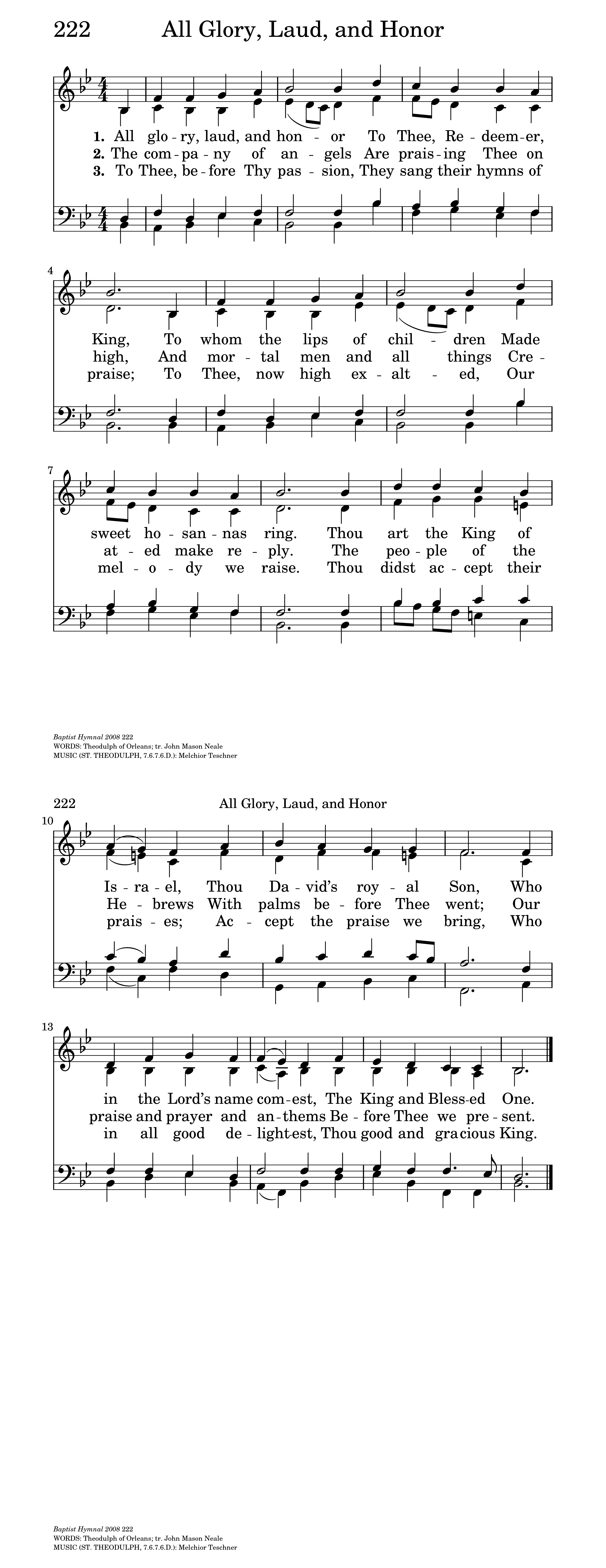to you, Redeemer, King,
to whom the lips of children
made sweet hosannas ring.
You are the King of Israel
and David's royal Son,
now in the Lord's name coming,
the King and Blessed One.
2. The company of angels
is praising you on high;
and we with all creation
in chorus make reply.
The people of the Hebrews
with palms before you went;
our praise and prayer and anthems
before you we present.
3 .To you before your passion
they sang their hymns of praise;
to you, now high exalted,
our melody we raise.
As you received their praises,
accept the prayers we bring,
for you delight in goodness,
O good and gracious King!
The hymn "All Glory, Laud, and Honor" was written by Theodulph of Orleans (circa 820–840), a bishop and poet. Theodulph composed the hymn in the early 9th century, likely around 820. It is traditionally associated with the events of Palm Sunday, celebrating Christ’s triumphant entry into Jerusalem.
The hymn was originally written in Latin under the title "Gloria, Laus et Honor". It became a part of Christian liturgical practices, especially in the context of Palm Sunday services.
The hymn was later translated into English by John Mason Neale in 1854, which is the version most commonly sung in English-speaking churches today. The text, both in its original and translated form, emphasizes the praise and adoration of Christ as the King, with a particular focus on His entry into Jerusalem.



No comments:
Post a Comment